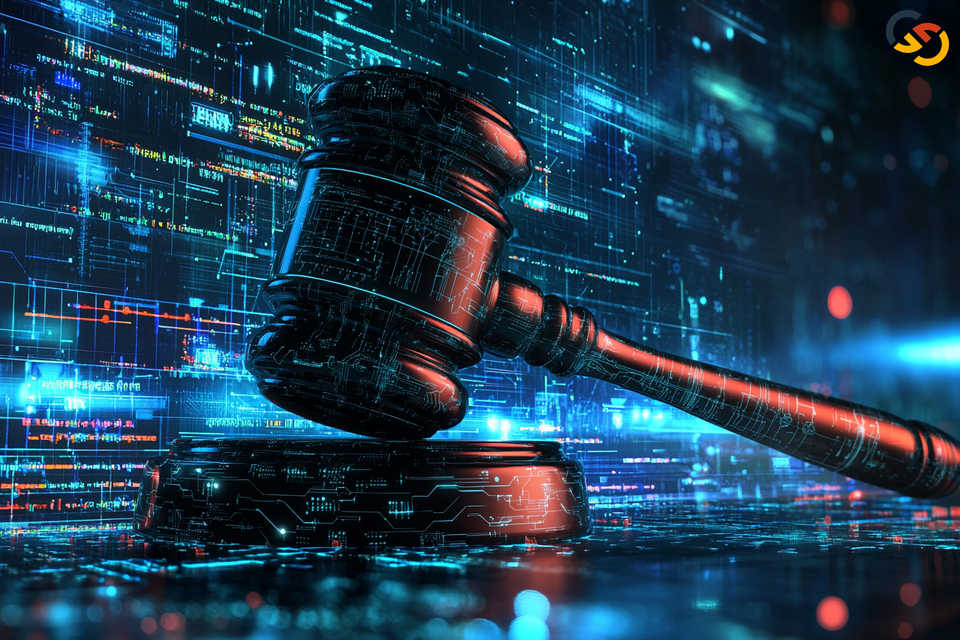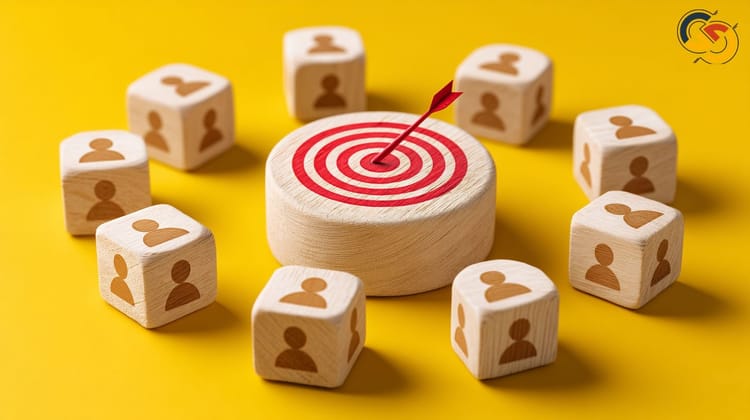Transforming Legal Practice: Key Use Cases of ChatGPT in the Legal Industry

Traditionally known for its conservative approach to technological adoption, the legal industry is experiencing a significant transformation with the emergence of artificial intelligence tools like ChatGPT. This advanced language model is revolutionizing various aspects of legal practice, offering opportunities for enhanced efficiency, improved client service, and innovative approaches to legal work. Let's explore the key use cases where ChatGPT is making a notable impact in the legal sector.
1. Legal Research and Analysis
Streamlining Case Law Research
One of the most time-consuming aspects of legal practice is researching relevant case law and precedents. ChatGPT can significantly expedite this process by:
- Quickly summarizing key points from legal cases
- Identifying relevant precedents based on specific fact patterns
- Highlighting important legal principles and their applications
- Cross-referencing multiple cases to establish legal trends
Legislative Analysis
ChatGPT assists lawyers in analyzing complex legislation by:
- Breaking down complex statutory language into simpler terms
- Identifying key provisions and requirements
- Highlighting potential compliance issues
- Comparing different versions of legislation
- Tracking legislative changes and amendments
2. Document Generation and Review
Contract Drafting
ChatGPT can accelerate the contract drafting process by:
- Generating initial drafts of standard contracts
- Suggesting appropriate clauses based on specific requirements
- Providing alternative language options for different scenarios
- Creating customized templates for frequent use
Legal Document Review
The technology can enhance document review processes through:
- Identifying potential issues in legal documents
- Flagging inconsistencies and ambiguities
- Suggesting improvements in language and structure
- Checking for compliance with standard legal requirements

3. Client Communication and Support
Client Intake and Initial Consultations
ChatGPT can improve client interactions by:
- Generating intake questionnaires
- Providing preliminary legal information
- Answering basic legal questions
- Helping screen potential clients
- Creating summaries of client situations
Client Updates and Communications
The tool can assist in maintaining effective client communications through:
- Drafting status updates
- Creating explanatory materials for clients
- Generating responses to common client queries
- Preparing meeting summaries and follow-up notes
4. Legal Writing and Brief Preparation
Legal Memoranda
ChatGPT can assist in preparing legal memoranda by:
- Organizing legal arguments
- Structuring analysis sections
- Suggesting relevant citations
- Providing writing improvements
- Ensuring consistent formatting
Court Filings
The technology can support the preparation of court documents by:
- Generating initial drafts of standard motions
- Suggesting appropriate legal arguments
- Helping structure legal briefs
- Creating tables of authorities
- Formatting documents according to court requirements

5. Due Diligence and Compliance
Contract Review and Due Diligence
ChatGPT can enhance due diligence processes through the following:
- Analyzing large volumes of contracts
- Identifying key terms and conditions
- Flagging potential risks and issues
- Summarizing important provisions
- Creating due diligence reports
Regulatory Compliance
The tool can assist with compliance matters by:
- Monitoring regulatory changes
- Identifying compliance requirements
- Creating compliance checklists
- Drafting compliance policies
- Generating compliance reports
6. Legal Education and Training
Staff Training
ChatGPT can support legal training initiatives by:
- Creating training materials
- Generating practice scenarios
- Providing explanations of legal concepts
- Developing assessment questions
- Offering interactive learning experiences
Professional Development
The technology can assist in ongoing legal education through:
- Summarizing new legal developments
- Creating study materials
- Generating practice questions
- Providing explanations of complex legal concepts
- Offering personalized learning paths
7. Practice Management
Time Management and Billing
ChatGPT can improve practice management by:
- Generating time entry descriptions
- Creating billing narratives
- Analyzing time allocation patterns
- Suggesting efficiency improvements
- Preparing billing summaries
Workflow Optimization
The tool can enhance operational efficiency through:
- Creating process documentation
- Developing standard operating procedures
- Suggesting workflow improvements
- Generating project timelines
- Creating task lists and reminders
Sunk Cost Fallacy
Anchoring Bias
Confirmation Bias
Fundamental Attribution Error
Endowment Effect
8. Market Analysis and Business Development
Market Research
ChatGPT can support business development efforts by:
- Analyzing market trends
- Identifying potential client needs
- Researching competitor activities
- Generating industry reports
- Creating market analysis summaries
Marketing Content
The technology can assist in creating marketing materials through:
- Generating blog posts and articles
- Creating social media content
- Drafting newsletters
- Developing presentation materials
- Writing website content
Best Practices and Considerations
Ensuring Accuracy and Quality
When using ChatGPT in legal practice, it's crucial to:
- Verify all generated content
- Cross-check legal citations and references
- Review outputs for accuracy and completeness
- Maintain human oversight of critical tasks
- Keep up with tool updates and capabilities
Ethical Considerations
Legal professionals should consider:
- Client confidentiality requirements
- Data security implications
- Professional responsibility obligations
- Disclosure requirements
- Appropriate use limitations
Integration Strategies
For successful implementation:
- Develop clear usage guidelines
- Provide adequate staff training
- Establish quality control processes
- Monitor and evaluate effectiveness
- Regular review and updates of processes
The use cases are not comprehensive. As the potential use cases & applications of Generative AI evolve, so will this list.
Conclusion
ChatGPT represents a powerful tool for the legal industry, offering numerous opportunities to enhance efficiency, improve service delivery, and innovate legal practice. While it's important to recognize that ChatGPT is not a replacement for legal expertise, it can serve as a valuable assistant in many aspects of legal work. As the technology continues to evolve, we can expect to see even more innovative applications in the legal sector.
The key to successful implementation lies in understanding the technology's capabilities and limitations, establishing appropriate protocols for its use, and maintaining proper oversight and quality control. Law firms and legal departments that effectively integrate ChatGPT into their operations while adhering to ethical and professional standards will be well-positioned to thrive in an increasingly technology-driven legal landscape.
For legal professionals considering the adoption of ChatGPT, it's recommended that they start with specific, well-defined use cases and gradually expand implementation based on success and lessons learned. This approach allows for proper evaluation of the tool's effectiveness while ensuring the maintenance of high professional standards and client service quality.
Frequently Asked Questions (FAQs)
Q: Is ChatGPT legally compliant for use in law firms?
A: Yes, ChatGPT is compliant when used as a supporting tool with proper oversight. Law firms must maintain client confidentiality, implement data security protocols, and have qualified professionals review all AI-generated content. Never input privileged client information into public versions of ChatGPT.
Q: How accurate is ChatGPT for legal research and document drafting?
A: ChatGPT's accuracy varies by task. It's highly reliable (90%+) for basic document templates and initial drafts but less accurate for complex legal analysis and jurisdiction-specific research. All outputs require verification by legal professionals, especially for case law citations and statutory references.
Q: What are the cost implications of implementing ChatGPT in a law firm?
A: While initial costs include subscription fees, training, and integration expenses, most firms see positive ROI within 6-12 months. Typical benefits include a 20-30% reduction in routine task time, a 15-25% decrease in junior associate hours, and a 40-50% efficiency gain in document review.
Q: How can law firms ensure client confidentiality when using ChatGPT?
A: Use enterprise versions with enhanced security, implement strict data handling protocols, anonymize client information before processing, and conduct regular security audits. Create clear guidelines on permissible inputs and maintain comprehensive documentation of AI usage.
Q: What training do legal professionals need to effectively use ChatGPT?
A: Legal professionals need 8-12 hours of initial training covering prompt engineering, platform functionality, output verification, and AI ethics. Ongoing education includes monthly updates (2-4 hours) and quarterly refresher sessions on best practices and compliance requirements.





